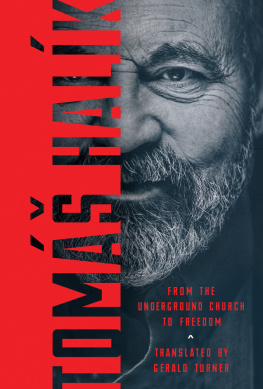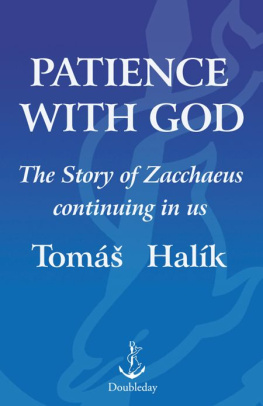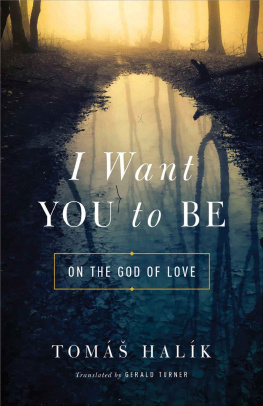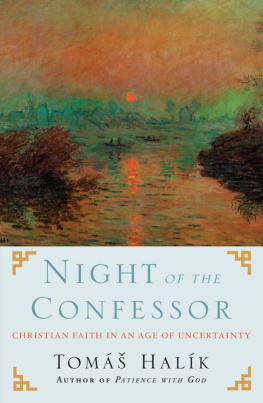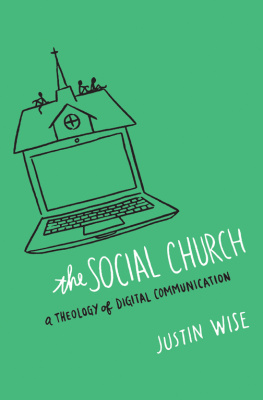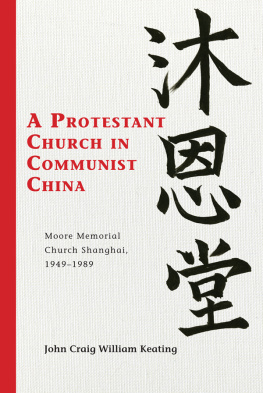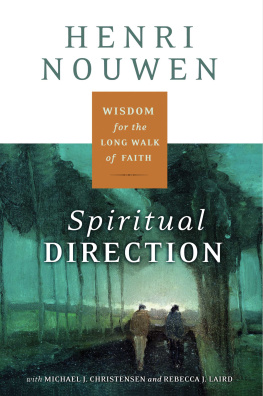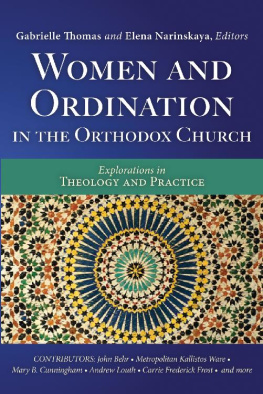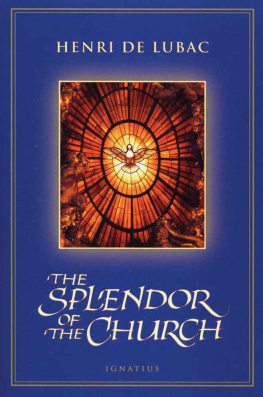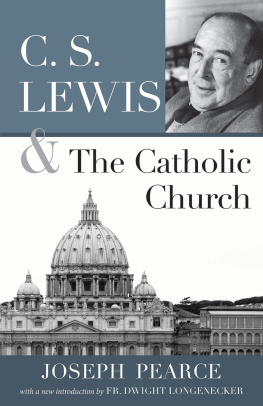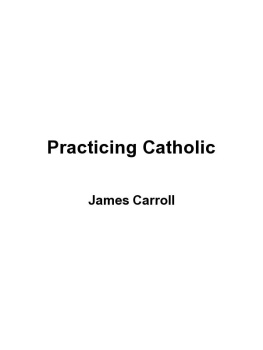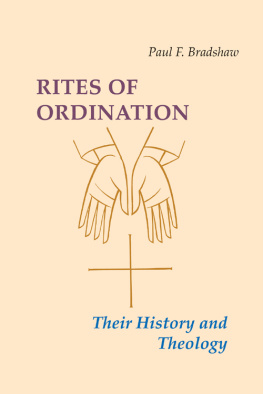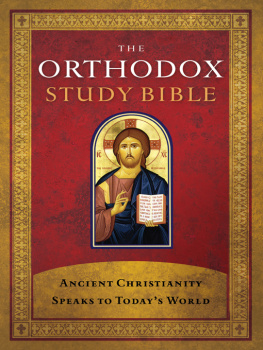Landmarks
Page-list
TOM HALK
is a Czech Roman Catholic priest, philosopher, theologian, and scholar. He is a professor of sociology at Charles University in Prague, pastor of the Academic Parish by St. Salvator Church in Prague, president of the Czech Christian Academy, and a winner of the Templeton Prize. His books, which are bestsellers in his own country, have been translated into nineteen languages and have received several literary prizes. He is the author of numerous books, including I Want You to Be: On the God of Love (University of Notre Dame Press, 2016, 2019), winner of the Catholic Press Association Book Award in Theology and Foreword Reviews' INDIES Book of the Year Award in Philosophy.
Gerald Turner
has translated numerous authors from Czechoslovakia, including Vclav Havel, Ivan Klma, and Ludvk Vaculk, among others. He received the US PEN Translation Award in 2004.
ONE
Are You Writing about Yourself?
Human life is ongoing self-interpretation. If I wish to present myself to someone else or to understand myself, I start to tell my own story. This is me in time. Unlike animals or things, we are not simply now: I myself am observing events. I unfold from a past that I carry with me, and at the same time, in a certain sense, I already have the future: in the form of hopes, wishes, plans, and fears.
Sometimes the derivation of the Latin word for religion religiois given as re-legerere-reading. Yes, faith is reading our own story anew, reading it from another viewpoint, in a broader context, with detachment and deeper understanding. Our life, viewed with the eyes of faith, is not a tale told by an idiot, signifying nothing, as Shakespeares Macbeth says. It is a story whose hidden author and director is God. But he does not move us like puppets on strings; the drama in which he has placed us is more like commedia dellartea play in which we are given enormous scope for improvisation. We recognize Gods writing style by its infinite generosity and its incomprehensible trust in our freedom. Wherever human freedom is not deformed and caricatured by indiscipline and willfulness, wherever it is realized in love and creation, there, in that freedom of human self-transcendence, can we glimpse perhaps the purest image and illustration of God, who is very freedom and generosity.
Confessions, the title of Augustines best-known book, can denote both confession of sins and confession of faith, or credo. Confession, the honest narration of ones own life journey with all its faults and misgivings, is certainly closely linked to confession in the sense of confession of faith, confessing to God. During the Mass we confess our sinfulness and our faith. Before confessing to God in the confession of faith, we go to confession to confess our sins and doubts and confess our humanity.
In confessing our sins and weaknesses we confront the person within us whom we would rather leave outside the church doorbut it is that person who is truly invited to the feast. When you give a banquet, invite the poor, the crippled, the lame, and the blind. That is what God does also: he does not invite the wealthy, just, and pious side of our being in its Sunday dress, the side that wants to reward Godor thinks it can. God invites what is blind, lame, weeping, poor, and hungry within us. Not in order to condemn this less attractive side of our being, but in order to feed and cheer it. The rabbi from Nazareth never failed to speak about it in his arguments with the Pharisees.
People often tend to be proudly locked up in their virtues, certainties, and strengths. What is fundamental in them opens up through their thirst, their yearning, and their wounds. What is fundamental in us is that very openness, openness to what is fundamental, to what is the only needful thing, which does not open itself to us at our moments of our satiated, self-sufficient, self-assurance. The openness of the human heart and the openness of the Kingdom of God are one and the same openness.
Who am I actually? I have become a question to myself, Augustine says. Yes, our selflike our Godmust be for us the subject of continuous questioning, doubting, and seeking. We seek ourselves, and God also, by telling our story, and in telling it we do not conceal our trembling. Only the heart that has not ceased to tremble in holy restlessness can, in the end, find rest in the sea of Gods Peace.
ARE YOU WRITING ABOUT YOURSELF AGAIN? Do you think people have the time or inclination to read about your life?, my associate Scarlett asked today in my study as she took a casual glance at the manuscript I had just handed to her for her critical comments. Scarlett has been at my side for forty years in good times and bad. She is the first person to read my texts, and a severe critic of everything I say, write, and do. No one on earth is capable of upsetting me the way she does; no one on earth has been of benefit and assistance to me the way she has. When several of my friends were appointed to high office after 1989, I could see that they desperately needed someone to give them systematic feedback, instead of the yes-men and lickspittles who surrounded them. The mature and good-natured side of myself I owe chiefly to Scarlett. The Bible says that a woman of fortitude is worth more than rubies; it requires a lot of fortitude, patience, and an unflagging hurricane of energy to stand by me.
What am I to say in response? I am writing about myself but also about a half century of history of a country in the heart of Europe, and particularly about the history of the sorely tested Czech Catholic church. Im not a historian, thats for sure, and my testimony will be a subjective one. How else? Naturally I am also writing my story for the readers of my books, and for those who have attended my lectures. When I read a book or listen to someones talk I frequently ask myself: How did this person come to the views they expound? Have they derived them mainly from books, from their study of specialist literature, or are their opinions also backed by the gold of their own personal life experience? Has their vision of the world undergone trials and crises? Did they have to revise or radically reassess their former views sometimes? When I know an authors life story and how their personality and opinions have evolved, their writings become more vivid, meaningful, credible, and immediate. My readers and listeners also have the right to know the internal context of my writing, as well as the external one, not just the historical circumstances and the social and cultural context, but also my life story and the drama of spiritual seeking and the process of maturity; should they wish to, they will find here the key to a deeper understanding of what I try to convey to them in my books and lectures. Before describing what one sees, one should declare where one stands, what is ones standpoint, and why one has adopted it.
Are you writing about yourself? I could also reply that I am writing about God. But is it possible to speak about God and not invest ones life in that account? Were I to speak about God objectively without investing myself in it, I would be speaking about a pallid abstraction. Wouldnt such an external God be merely an idol. Conversely, is it possible to speak about oneself and say nothing about God? Were I to speak about myself and say nothing about God, I could attribute to myself what is his and become stuck for eternity in a trap of self-centeredness or drown myself in narcissistic superficiality. When Narcissus leans over the surface of the lake he sees only himself, and his eye remains fixed to the surface and his own image there. This superficiality turns out to be fatal for him. The gaze of the believer must penetrate deeper. Only then will the depth not become a malignant trap.

